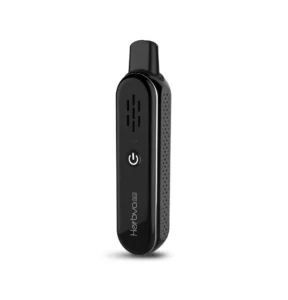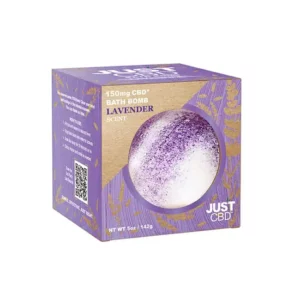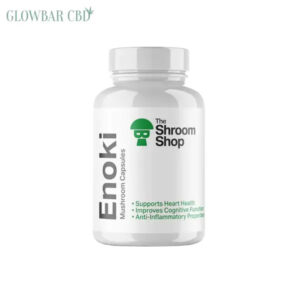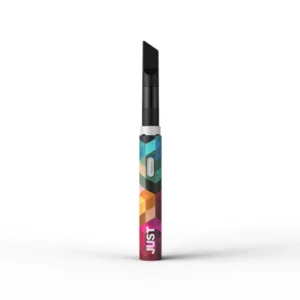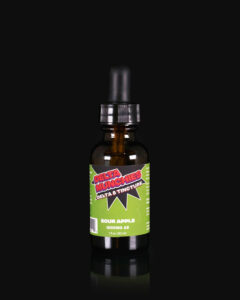What are CBD pills? How can one get access to such pills? How effective are CBD pills to an individual? This article explains how CBD pills are effective for an individual.
CBD can be good for pain, sleep problems, stress, and inflammation. Also, when taken in pills, the products are equally effective. You may also want to take CBD pills to enjoy relative bioavailability, dosage precision, and better taste of CBD.
Taking CBD pills may help you boost your sleep, manage stress, and fight pain, showing how effective the CBD pills can be. Although they may not be as bioavailable as CBD oil or vapes, individuals can enjoy relative bioavailability with CBD pills. CBD pills are better than CBD edibles when it comes to effectiveness and how first an individual can feel it afterward. The pills are not as clumsy as CBD oils, and this is something you certainly want to capitalize on. Here is all you need to know about the effectiveness of CBD pills.
The Basics of CBD and CBD Pills
Massi et al. (2006) described CBD as the non-psychoactive chemical compound in hemp, marijuana, and other cannabis plants collectively called cannabinoids. They are more than 113 cannabinoids in nature. Still, CBD stands out because of its purported therapeutic effects, including on dogs and other pets, as Greb & Puschner (2018) noted. People take CBD for pain, inflammation, sleep issues, enhanced focus, and stress management, among other reasons. The body cannot directly absorb CBD, so it must be coined in a form absorbable. It is no wonder that liquid-based CBD tinctures and oil-based CBD oil are at the top of the CBD arena since the base liquids allow absorption. CBD pills are another deliverable method for CBD that is gaining popularity quickly. They are like normal pills, only that the key ingredient is CBD.
Are CBD Pills Effective?
Because of their novelty and the cost of farming hemp and preparing CBD, CBD products are quite expensive. The cost may vary from time to time but is high. Individuals want to use CBD products that are more effective to help save money and feel the product. Generally, CBD awareness is limited, and most individuals have focused on CBD sublinguals (CBD oils and tinctures) and topicals (CBD creams and ointments). Still, there is access to any CBD delivery method, whereby the pills may not be as good as CBD oil or vapes, but they are also not badly off.
CBD Pills for Relative Bioavailability
The effectiveness of any CBD delivery method depends on many factors, including its bioavailability. It measures how fast CBD gets to the bloodstream and how long the effects take to surface. CBD vapes and CBD oils are among the most bioavailable CBD delivery methods since they need no digestion and reach the bloodstream directly through sublingual administration or inhalation. CBD pills may not be as bioavailable as CBD oils and vapes since they are ingested and have to undergo digestion before the CBD in them is delivered to the bloodstream. Thus, CBD pills may not be as good as CBD sublinguals and inhalables, but they are not badly off. Some individuals explain that CBD pills are better than CBD edibles which need more time for thorough digestion for the CBD in them to be sapped out and absorbed into the bloodstream.
What Are CBD Pills Effective for?
Since CBD pills are expensive like other CBD delivery methods, individuals want to know what a product can offer before spending money on them. Individuals may want to know what the pills are effective for. As stated earlier, CBD pills, like other CBD delivery methods, are effective and seem to have therapeutic potential (Watt & Karl, 2017). According to Mlost et al. (2020), CBD may help chronic pain. García-Gutiérrez et al. (2020) found CBD great for stress, anxiety, and depression, which are among the serious mental issues afflicting many. Many people suffer from sleep problems and insomnia. Murillo-Rodriguez et al. (2014) reported that CBD might help sleep since it regulates the circadian rhythm and the sleep-wake cycle. Considering CBD pills, all delivery methods for CBD deliver the same compound to the body.
Are CBD Pills Healthy and Safe?
The safety and health profile of CBD pills and other CBD delivery is unclear. It is because of the insufficient studies in the CBD arena. With millions of research papers on CBD, including CBD pills, they do not provide sufficient scientific evidence to guarantee the safety of CBD. Also, the lack of scientific evidence on the potential of CBD has spiraled to the FDA, which has hesitated to take responsibility for monitoring the production of CBD in any deliverable method. It is not easy to tell which CBD brands have health benefits, and one can only hope that the CBD pills do not harm you. Still, with sufficient scientific evidence on the potential and safety of CBD and enough regulation in the CBD field, individuals will be able to gauge the safety of CBD pills.
Should You Take CBD Pills?
CBD pills are not only effective and relatively bioavailable, but they promise a better taste of CBD than CBD oil. Although they are not flavored, they have CBD’s taste somewhat masked, and one need not feel the bitterness of CBD oil with them. They also ensure dosage precision since you don’t have to measure the dosages manually. As such, they have many pros that may attract you to them. It is a personal decision to take CBD pills, and before settling for them, you should weigh the pros and cons and choose your way through. Remember, the safety of CBD products, including CBD pills, leaves a lot to be desired.
Conclusion
CBD pills are like normal medicine, only that they have CBD as the key ingredient. They are good for bioavailability, dosage precision, and discretion. Since they are relatively bioavailable, they are also effective, but not as much as CBD oil. Yet, you may want to take it slow on them and other CBD delivery methods because of the massive lack of regulation and the cloudy safety profile.
References
García-Gutiérrez, M. S., Navarrete, F., Gasparyan, A., Austrich-Olivares, A., Sala, F., & Manzanares, J. (2020). Cannabidiol: a potential new alternative for treating anxiety, depression, and psychotic disorders. Biomolecules, 10(11), 1575.
Greb, A., & Puschner, B. (2018). Cannabinoid treats as adjunctive therapy for pets: gaps in our knowledge. Toxicology Communications, 2(1), 10-14.
Massi, P., Vaccani, A., Bianchessi, S., Costa, B., Macchi, P., & Parolaro, D. (2006). The non-psychoactive cannabidiol triggers caspase activation and oxidative stress in human glioma cells. Cellular and Molecular Life Sciences CMLS, 63(17), 2057-2066.
Mlost, J., Bryk, M., & Starowicz, K. (2020). Cannabidiol for pain treatment: focus on pharmacology and mechanism of action. International journal of molecular sciences, 21(22), 8870.
Murillo-Rodríguez, E., Sarro-Ramírez, A., Sánchez, D., Mijangos-Moreno, S., Tejeda-Padrón, A., Poot-Aké, A., Guzmán, K., Pacheco-Pantoja, E., & Arias-Carrión, O. (2014). Potential effects of cannabidiol as a wake-promoting agent. Current neuropharmacology, 12(3), 269–272.
Watt, G., & Karl, T. (2017). In vivo evidence for therapeutic properties of cannabidiol (CBD) for Alzheimer’s disease. Frontiers in pharmacology, 8, 20.
I believe that nutrition science is a wonderful helper both for the preventive improvement of health and adjunctive therapy in treatment. My goal is to help people improve their health and well-being without torturing themselves with unnecessary dietary restrictions. I am a supporter of a healthy lifestyle – I play sports, cycle, and swim in the lake all year round.
[email protected]
- Kratom Powder By Just Kratom-Kratom Powder Paradise: My Exhilarating Journey with Just Kratom - October 6, 2023
- How is Hemp Oil Made? - February 21, 2023
- Breaking down CBD: what’s in extra strength CBD oil? - October 23, 2022







